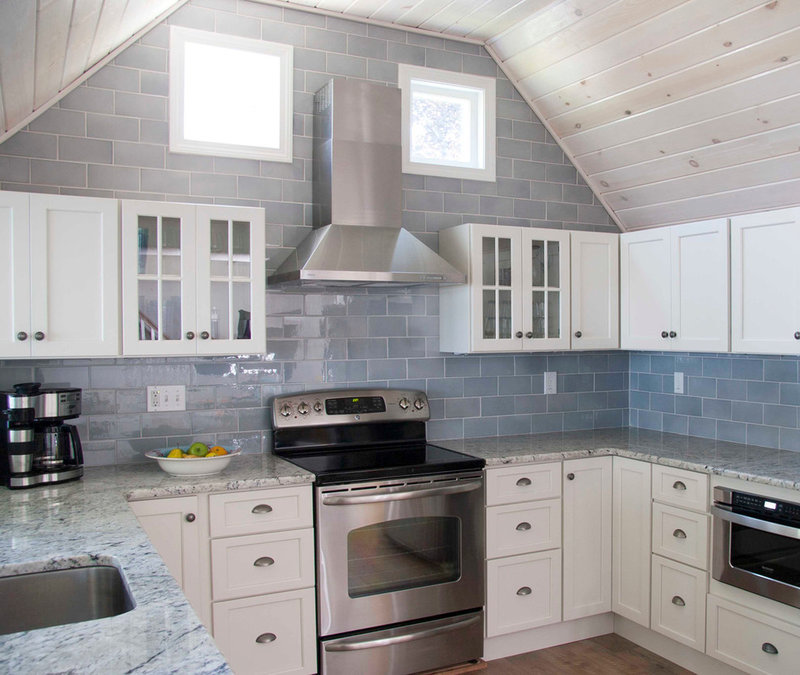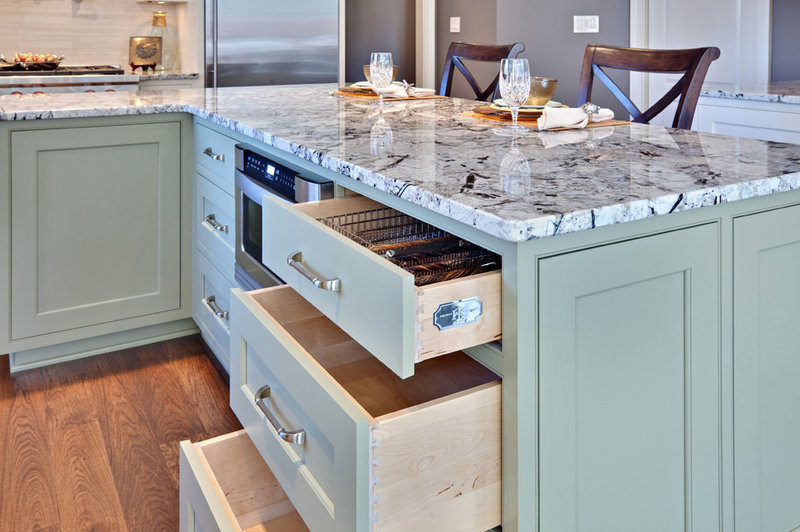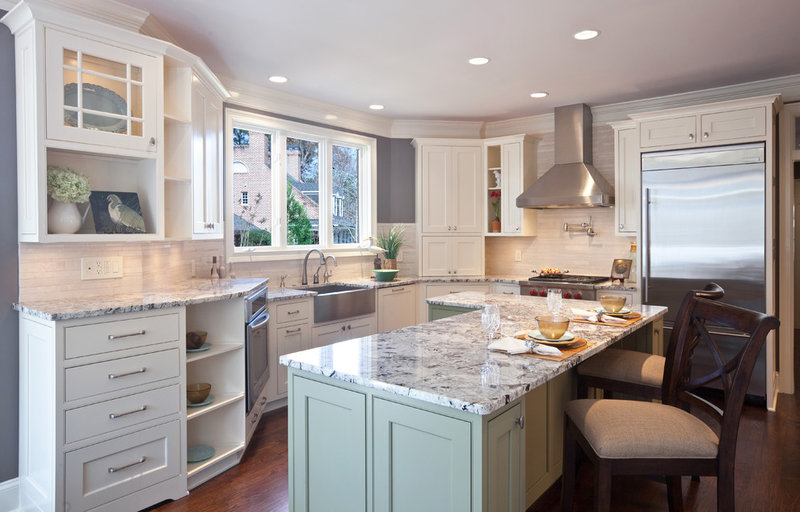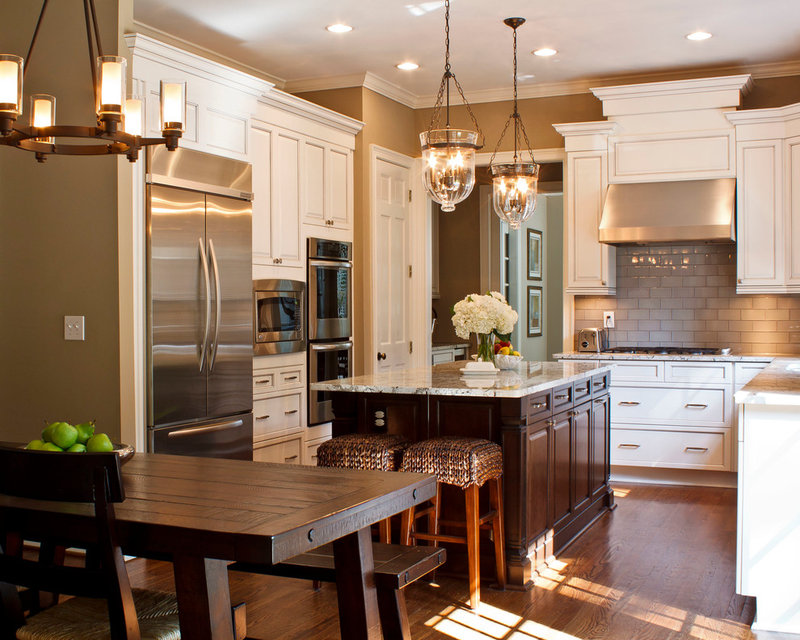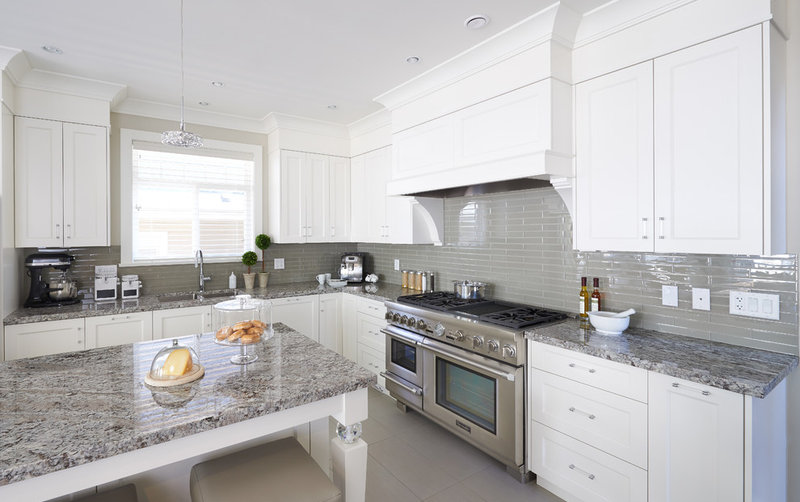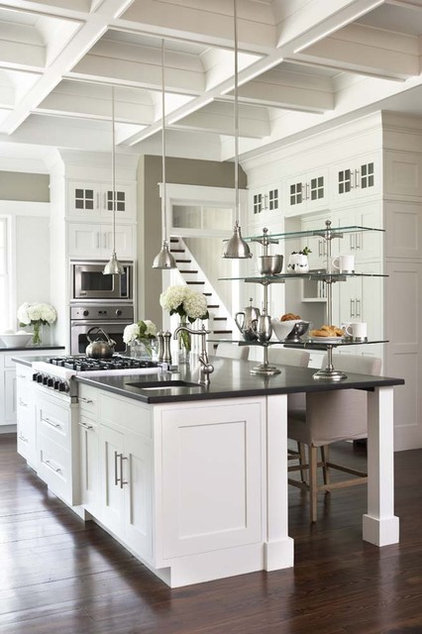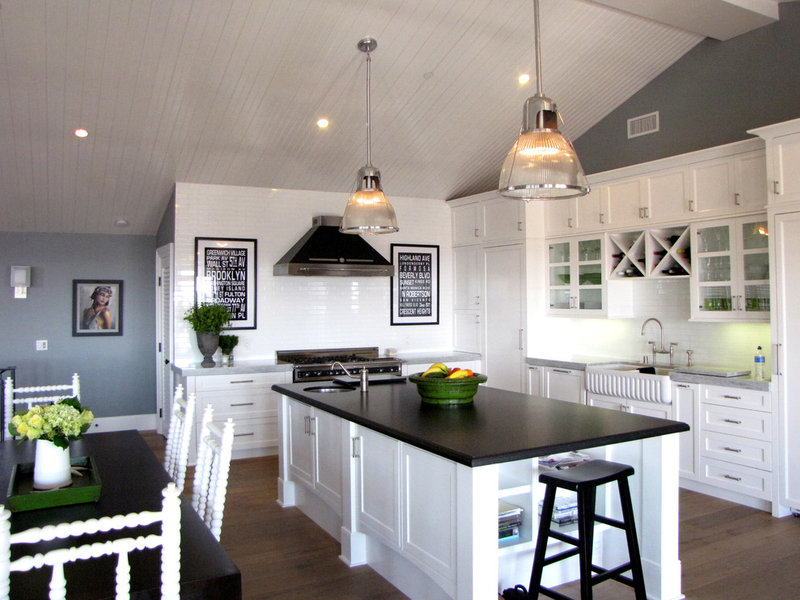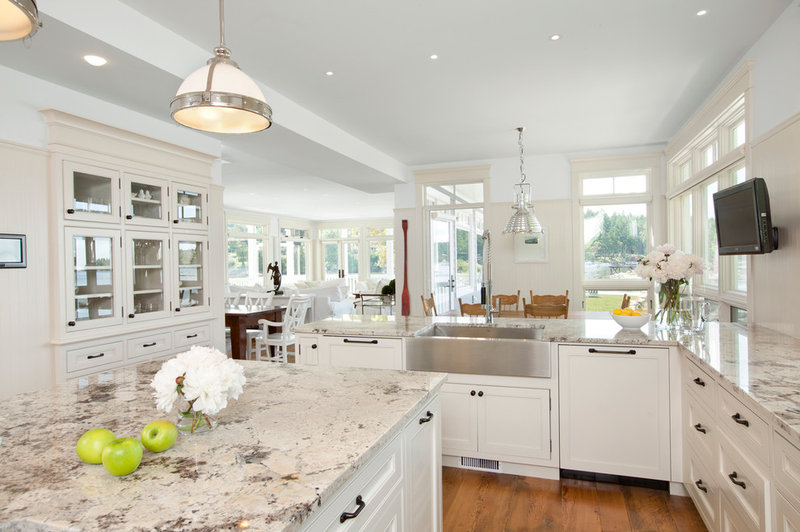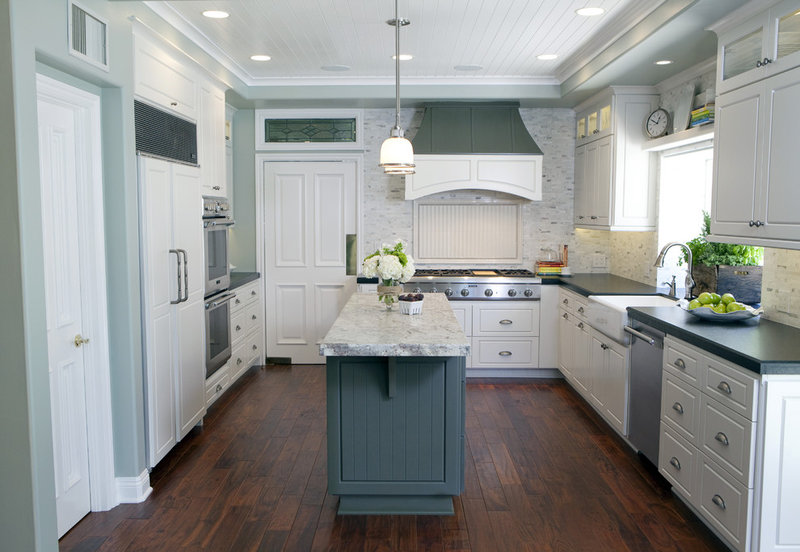Produced by Hanley Wood Strategic Marketing Services, sponsored by Electrolux
2014 Kitchen Design Trends
When it comes to kitchens, homeowners are looking for clean lines, simplicity, comfort, ease of use, and energy-saving appliances, according to designers, and the trends reflect those preferences.
"It's all about the sleek modern line," says Maria Stapperfenne, 2014 president-elect of the National Kitchen and Bath Association (NKBA). While transitional style is still hanging on to the top spot on NKBA's annual survey of kitchen and bath trends, Stapperfenne says contemporary style is really nipping at its heels.
"There's a slowdown in the the Tuscan and Provincial look; I'm not seeing as many people drawn to that, says Stapperfenne, who is also manager of Tewksbury Kitchens & Baths in Whitehouse Station, N.J.
"Now those people who raised their families with the old world kitchen are looking at downsizing and simplifying their lives, and these new transitional and contemporary designs are a perfect fit. These contemporary styles can also be very fun with mixing colors—glossy color, not matte—and woods.
"Kitchens by definition need to be clean," says Chicago kitchen designer Mick DeGiulio, and the move toward more simplified spaces reflects that.
Designers are also seeing more mixing of materials, and the juxtaposition of different styles in the kitchen.
San Francisco kitchen and bath designer Joanne Cannell will mix different base and wall cabinets in a kitchen and bath, and says she will often suggest something like a hutch in a baking area for storage, and as a counterpoint to the more modern cabinetry and sleek appliances.
Not only is wood the No. 1 floor choice, according to the NKBA trend survey, but designers are using wood on countertops, sometimes alone, often mixed with solid surface materials.
"This year, I see a much bigger use of black walnut," says Stapperfenne, who has seen neutrally painted cabinets with dramatic black walnut interiors. Mixing materials can create visual interest as well as dynamic tension, the latter being especially effective in an otherwise cool, contemporary space.
Wood also brings warmth, and a suggestion of cosiness to any space where it's used, says DeGiulio. "I hear, 'I want to hang out in my kitchen,' so we are looking to see how we can translate that comfort and sense of ease to a kitchen." Using wood in an artful manner is one way designers can do that, he says. Using brushed finishes on tiled surfaces is another means of bringing in warmth.
Open kitchens remain a big trend, and DeGiulio finds that a lot of design is being driven by the kitchen, as those finishes flow into the rest of the house.
Taking a cue from commercial kitchens, designers are creating various stations for work in the kitchens they design. Depending on how a homeowner uses the kitchen, says Cannell, a designer might want to add a prep sink to the bar, or a second refrigerator near the door to the garage.
Large kitchens often pose space planning challenges. "You need to make the big kitchen work like a small kitchen," says DeGiulio. While he still uses the classic work triangle, there can be more than one.
 |
|
Mixing wood with other materials in a modern kitchen can bring a sense of warmth and cosiness to the space.
|
In a really large kitchen, he might create what he calls la mattina, the morning kitchen, a work station with a toaster oven, small refrigerator and coffee maker, where homeowners or their children could prepare a quick breakfast.
DeGiulio, like most designers, includes a docking/charging station—typically in the island—of the kitchens he designs. Noting the trend, at least one manufacturer of solid surface countertops has embedded wireless charging capacity in the slab, says Cannell, allowing homeowners to charge their devices simply by laying them on the countertop's surface.
While white retains its No. 1 spot as the most popular paint color for kitchens, gray is coming on strong, while the popularity of bone and beige is receding. What's interesting about gray, notes Stapperfenne, is that it is the whole range of grays, including the taupey-grays (aka mouse colored) that are having a moment in the sun, not simply a light gray.
The NKBA survey noted the following features in demand: LED lighting; induction cooktops, steam ovens, French door refrigerators, bottom freezer refrigerators, and no-touch faucets/touch-activated faucets.
Low-heat LED lighting lets designers tuck recessed lights in just about every nook and cranny of the the kitchen, allowing multiple indirect sources of light, and highlighting the sculptural aspects of the kitchen, says DeGiulio. "We can create wonderful effects."
Sleek, perfectly flat, energy-efficient induction cooktops don't heat up like gas or electric cooktops, and are a good safety option for households with young children or elderly occupants. They are also easy to clean, meeting consumers' desire for kitchen surfaces that can be cleansed with less effort, says Stapperfenne.
Steam ovens and steam/convection combo ovens are growing in popularity, driven by homeowners' quest for efficiency. The combo ovens offer homeowners decreased cooking time and healthy steam cooking without the need for heating up water on a stovetop, notes Cannell. Leftovers benefit too: "You can heat up a rare cut of meat in a steam oven, and it will still be rare," she says.—Kate Tyndall




 Subscribe with RSS Reader
Subscribe with RSS Reader

